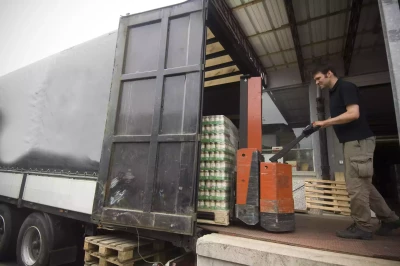Understanding FSMA Regulations: Challenges and Opportunities
October 15, 2024
 The Food Safety Modernization Act (FSMA) has dramatically altered the regulatory landscape for those involved in the food supply chain. Although the FSMA’s primary goal is to enhance food safety, many in the industry have observed that it’s more about increasing documentation requirements than true modernization.
The Food Safety Modernization Act (FSMA) has dramatically altered the regulatory landscape for those involved in the food supply chain. Although the FSMA’s primary goal is to enhance food safety, many in the industry have observed that it’s more about increasing documentation requirements than true modernization.
“If you’ve ever heard me speak on it, I say it never should have been called the Food Safety Modernization Act; it should have been called the Food Documentation Act,” says Don Durm, VP of Customer Solutions at PLM Fleet, LLC. “At the time, there was nothing modern about it.”
For professionals in the food supply chain, FSMA represents both a challenge and an opportunity. The law shifts the U.S. Food and Drug Administration (FDA) from a regulatory body to a law enforcement entity, where violations can result in significant penalties, including criminal prosecutions. This shift has pushed supply chain participants to exercise extreme caution, especially regarding food recalls.
FSMA regulations require enhanced traceability for certain food products, with detailed tracking of critical events and data elements from farm to table. For instance, items like peanut butter now require full traceability from the moment they are harvested to when they reach a consumer’s home. This level of oversight is meant to ensure quick identification and containment of any foodborne illness outbreaks, thus protecting public health.
Recalls, whether voluntary or mandatory, have become more frequent as companies aim to err on the side of caution. A single recall can devastate a brand’s reputation, making early detection and prevention essential—not to mention the astronomical cost that a recall entails.
“The average recall, according to GMA, is ten million dollars each recall,” says Durm. “Some are much more, and some are less, but if you average them out, it’s that amount of money.”
How can leveraging technology help your company adapt to increased regulatory scrutiny in the supply chain? Watch the latest episode of the Stay In Your Lane Podcast to learn more.
The FDA is looking to make the supply chain more tech-enabled, a shift driven in part by the increasing complexity of food distribution. With FSMA 204 rules in place, the focus is on traceability, especially as supply chains extend to last-mile deliveries—now from the grocery store or restaurant directly to consumers’ homes. This extension introduces new layers of complexity for everyone involved in the transport process.
The rule mandates that all critical tracking events must be documented and stored in a sortable format, accessible within 24 hours upon FDA request. While these rules predominantly apply to shippers and receivers, brokers should be aware of their involvement, particularly when temperature-sensitive products are cross-docked. Any discrepancies between the temperature in the trailer and the loading dock must be recorded, making pool distribution points especially vulnerable to regulatory scrutiny.
 As FSMA continues to evolve, the key for freight professionals is proactive compliance. It’s not enough to react to recalls or FDA inquiries. Instead, brokers and other key stakeholders should be part of a collaborative effort to ensure transparency and accuracy throughout the entire supply chain.
As FSMA continues to evolve, the key for freight professionals is proactive compliance. It’s not enough to react to recalls or FDA inquiries. Instead, brokers and other key stakeholders should be part of a collaborative effort to ensure transparency and accuracy throughout the entire supply chain.
More advanced tracking tools can also aid in the shift toward greater visibility in the supply chain. For example, a “fit bit for the supply chain” could record data as products move through the transport process, reducing human error and ensuring compliance without the need for manual documentation at every stage. The use of common standards, such as GS1 barcodes, is also critical, though the lack of uniformity in barcode use across the industry remains a hurdle.
FSMA regulations are here to stay, and the penalties for non-compliance can be steep. But with the right technology and a commitment to traceability, transport companies can turn these challenges into opportunities. By staying ahead of regulatory changes and embracing innovations in supply chain tracking, companies can ensure they remain compliant while continuing to serve their customers effectively.
In an industry where compliance and safety are paramount, it’s critical for supply chain partners to stay ahead of evolving regulations like the FSMA. Triple T Transport remains at the forefront of food safety and traceability by leveraging the latest technologies to ensure accurate tracking, documentation, and transparency throughout the supply chain. Whether it’s ensuring timely deliveries, maintaining the integrity of sensitive goods, or adhering to strict regulatory standards, Triple T is committed to helping our partners safeguard their products and protect their reputation through our industry-leading 3PL services.














